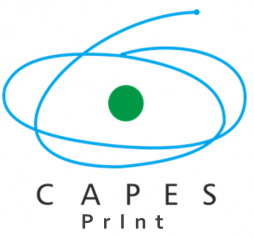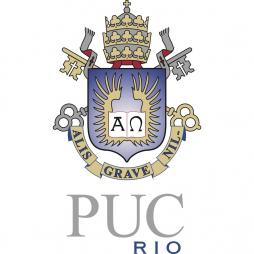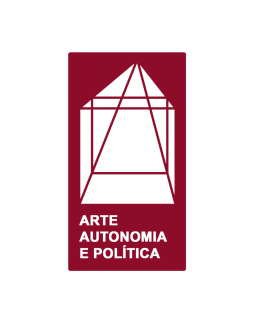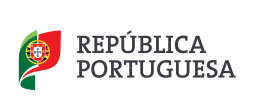04 MAI 2022 - 06 MAI 2022 | ESCOLA DAS ARTES - UNIVERSIDADE CATÓLICA PORTUGUESA
Conferência Híbrida (presencial e online)
CONFERENCISTAS E ARTISTAS DO PAINEL
Alice Miceli
Carles Guerra
Samaneh Moafi
Susan Meiselas (a confirmar)
Ute Meta Bauer
CHAMADA PARA COMUNICAÇÕES
Prazo para submissão: 28 de fevereiro de 2022
Comunicação de aceitação: até 15 de março de 2022
Enviar para: springseminar.arts@porto.ucp.pt
A submissão faz-se através do envio de um Documento Word contendo as seguintes informações:
- Título
- Nomes de autores, afiliação e respetivos contactos
- Resumo (Abstract), 250-300 palavras
- 3-5 palavras-chave
- 3-5 referências bibliográficas
- Nota biográfica de autores, até 100 palavras
Aceitamos submissões individuais (comunicações até 20 minutos), ou de um painel pré-constituído (3 a 4 pessoas, 20 minutos por pessoa), identificando um/a coordenador/a, que assume responsabilidade pela submissão – endereçando todos os elementos num só ficheiro, para o endereço de email fornecido.
Este é um evento presencial. Todavia, aceitam-se propostas de comunicações online, devido às potenciais restrições de deslocação.
The Spring Seminar 2022 takes as its starting point issues raised by the photographic work of Brazilian artist Alice Miceli. In Depth: minefields displays four series of images taken in various regions across countries where landmines and other explosives remnants of war play an invisible yet all-determining role, namely, Cambodia, Bosnia, Colombia and Angola.
Landmines are remnants of war, weapons placed to kill and maim, which continue to be dangerous even decades after a conflict has ended. They are remainders of a cruel logic that is indifferent to the lived experience of a place. In the world today, there are an estimated one hundred million mines scattered around seventy countries, and every two hours someone is either killed or injured by one. In some regions of Cambodia or Angola, for instance, mines outnumber people, quietly transforming entire landscapes into everlasting impenetrable spaces.
Photography is inherently a formal practice. The capturing of an image is bound to systems involving matters of light, framing, positioning, movement and the suggestion of space. Looking at times at seemingly “undisturbed” landscapes, what these series of images capture is, in fact, something else. Something that lays beyond a simple appearance, and which, in reality, conceals a dormant destruction; images that together constitute a choreography of (literal) steps across landscapes of potential disaster, bringing forward a debate around the different elements at stake involved in the crafting of a photograph as well as questions relating to landscape representation in a post-colonial context.
If photography can be an instant that creates a voluntary memory, a mine that explodes is the reverse: an instant that annihilates – death in the age of its mechanical reproduction. This work constitutes an action that is both a performance (that of the artist’s body off-screen, in the organization of the physical presence of her gaze in direct relationship to an obscured subject matter) and an exploration of what this action means for the image. It displays visual narratives with which to experience journeys across the topography of mine-contaminated lands that interconnect space, positioning and movement, both in the field and in the photographs.
This seminar aims at fostering dialogues around the relationship of images and traumatic historical, spatial and political realities. How can images be both artistic and political? How can we picture the invisibility of traumatic situations and experiences? Can we represent a post-colonial reality and offer points of view from within lands taken by unexploded mines? How can works of art contribute to the task of opening debates around the debts of cold-war policies?
Finally, the minefield images (and the action of walking across potentially explosive landscapes) can be thought as a lived as well as a visual testimony to some consequences of the Anthropocene – our current era in which human intervention is altering the geological composition of the Earth to such an extent that its massive impacts start to be deemed irreversible. Miceli’s work provides the conceptual, political and artistic issues that our seminar will develop. We welcome proposals in the following topics or others considered pertinent in the context of this call, within the fields of cinema, photography, and other visual arts:
- wastelands and traumatic landscapes
- contemporary art and (war) trauma
- relations between contemporary art with memory and history (of war)
- artistic vs political images
- history (of war) and its materiality
- decolonial theory and trauma
Uma iniciativa conjunta: Escolas das Artes da Universidade Católica Portuguesa; CITAR – Centro de Investigação em Ciência e Tecnologia das Artes; PUC – Rio; CAPES Print; Grupo de Arte, Autonomia e Política








